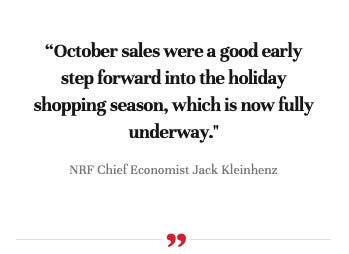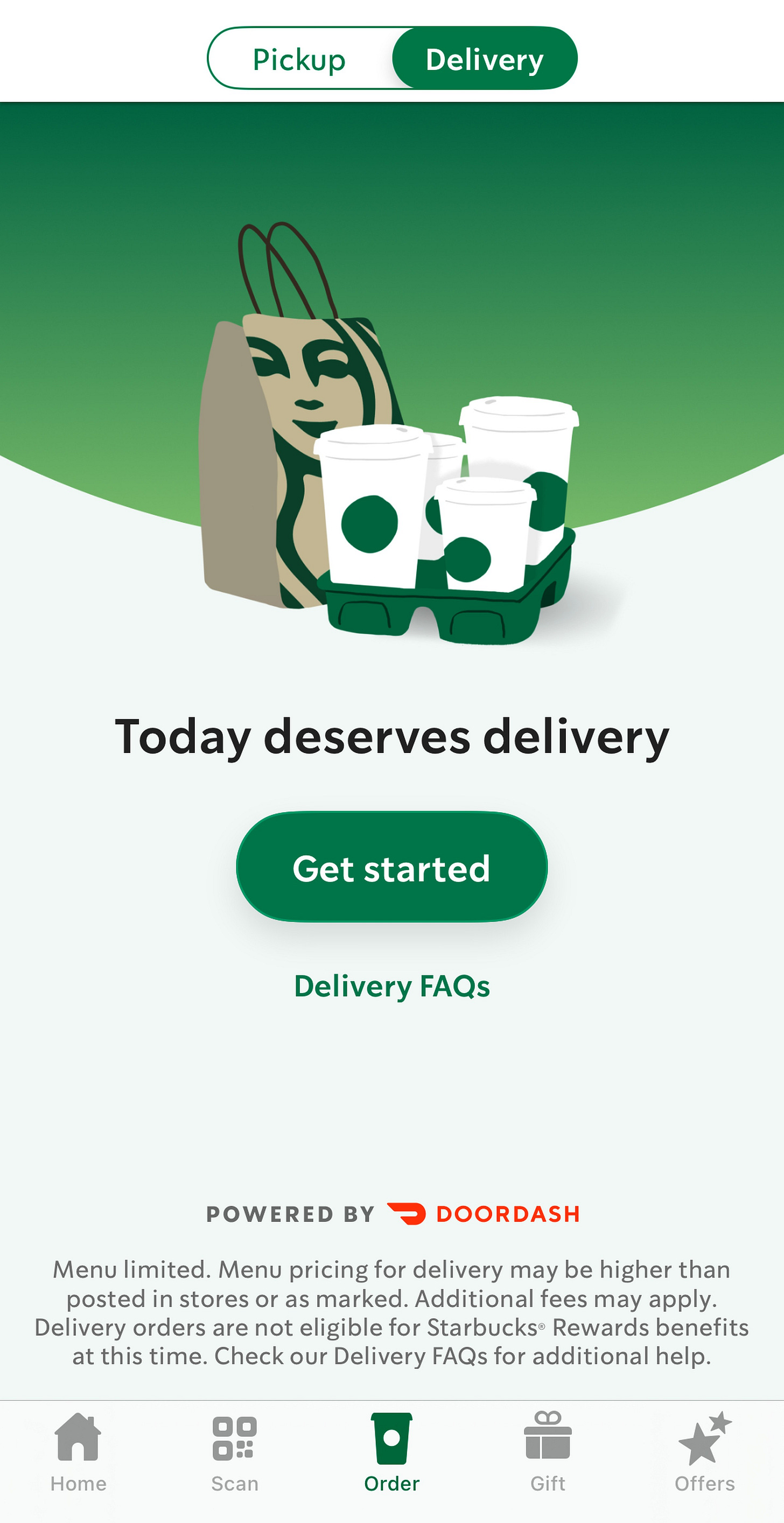This Week in Retail #52
Hey Friends,
The Advance Monthly Sales for Retail and Food Services in October 2024 showed a total of $621.59 billion, representing a slight increase of 0.35% from September 2024 and a 2.63% rise from October 2023. Here's a breakdown of key categories based on performance trends:
Food Services and Drinking Places: Continued to show strong growth, reflecting increased consumer spending on dining out.
Nonstore Retailers (e-commerce): This category saw a significant increase, driven by the ongoing shift to online shopping.
Motor Vehicle and Parts Dealers: Sales in this segment were stable, indicating steady demand.
Clothing and Accessories Stores: Experienced a decline, likely due to seasonal factors as spending shifts toward the holiday season.
Furniture and Home Furnishings Stores: Modest gains were noted, reflecting improvements in the housing market.
General Merchandise Stores: Flat performance, with gains in warehouse clubs offset by declines in department stores.
Tapestry and Capri Holdings have officially ended their proposed $8.5 billion merger after facing significant regulatory challenges. The U.S. Federal Trade Commission (FTC) had sued to block the deal earlier this year, citing antitrust concerns that it would reduce competition in the luxury fashion market. A federal judge granted a preliminary injunction in October 2024, emphasizing that the merger would likely harm consumers by limiting competition among brands such as Coach, Kate Spade, Michael Kors, and Versace. The companies mutually agreed to terminate the merger, as the legal challenges made it unlikely the deal could close before the February 2025 deadline. Both Capri and Tapestry plan to focus on organic growth and brand strategies going forward. Tapestry announced a $2 billion stock buyback plan as part of its refocused efforts, while Capri outlined plans to enhance brand desirability and consumer experiences for its portfolio, including Michael Kors, Versace, and Jimmy Choo.
The cancellation of the Tapestry-Capri merger underscores growing regulatory scrutiny of large-scale acquisitions, particularly in the retail and fashion industries. This decision highlights key implications for other potential retail mergers:
Antitrust Concerns: Regulatory bodies like the Federal Trade Commission (FTC) are increasingly scrutinizing mergers that could reduce competition. In the Tapestry-Capri case, concerns centered on limiting consumer choice and raising prices in the luxury handbag and accessories sector. Retailers contemplating mergers may face heightened challenges proving their deals won't harm competition, even in niche markets
Legal and Financial Risks: The FTC's proactive stance and recent court decisions signal a tougher environment for completing mergers. Companies may need to prepare for prolonged legal battles, increased compliance costs, and the potential for termination fees or financial losses if deals fall through
Shift Toward Organic Growth: With regulatory hurdles complicating mergers, more companies may shift focus to organic growth strategies. For example, both Tapestry and Capri plan to enhance their existing operations, emphasizing brand development and customer engagement instead of seeking acquisitions
Potential for Smaller, Strategic Acquisitions: Retailers may opt for smaller, less scrutinized deals that don't trigger antitrust concerns. Targeted acquisitions that complement existing operations could be more viable than large-scale mergers involving industry leaders.
This evolving regulatory landscape emphasizes the need for strategic planning, transparency, and alignment with antitrust guidelines in the retail sector. Retailers considering mergers should engage with regulators early to address potential concerns proactively.
As we mentioned last week, delivery partnerships are key to the holiday season, and now getting your sweet treats and coffee is becoming even easier.
Starbucks recently introduced delivery directly through its mobile app in the U.S. and Canada (excluding Quebec). Powered by DoorDash, this feature allows users to toggle between Pickup and Delivery when selecting a store. The integration with DoorDash's platform offers a seamless ordering experience while enabling Starbucks to gather customer insights and enhance engagement. This update builds on Starbucks' previous delivery partnerships, aiming to provide greater convenience for customers within participating delivery zones
Krispy Kreme is expanding its delivery capabilities by piloting partnerships with third-party delivery services in select U.S. markets. This initiative is part of its strategy to enhance the efficiency and reach of its "delivered fresh daily" program. The pilot is being tested in cities such as Washington, D.C., and Los Angeles, with a focus on maintaining quality and improving logistics. These efforts align with Krispy Kreme’s broader modernization goals, which include automating donut production and improving transportation processes to deliver fresh products to more customers daily. Additionally, Krispy Kreme has seen significant growth in its digital and delivery channels, with over 15,500 locations globally offering its products. This new approach aims to integrate third-party delivery while optimizing its existing supply chain to sustain growth and customer satisfaction
Advance Auto Parts plans to close more than 700 stores, including 523 corporate-owned and 204 independently-owned locations, as part of a major financial restructuring effort. Additionally, four distribution centers will be shuttered. This move, announced alongside their third-quarter earnings, is aimed at improving operating margins and overall performance after a decline in sales and rising expenses. The company expects to complete the closures by mid-2025, with anticipated costs ranging between $350 million and $750 million for the restructuring process. Advance Auto Parts, which has been struggling with declining comparable store sales and increased labor costs, aims to boost profitability through a three-year strategic plan focused on core retail operations. The closures reflect broader challenges in the retail sector as consumers cut discretionary spending.
Hot Topic recently experienced a significant data breach impacting nearly 57 million customer accounts across its brands, including BoxLunch and Torrid. The breach, which occurred in October 2024, exposed sensitive information such as full names, email addresses, dates of birth, physical addresses, phone numbers, and partial credit card data. It was allegedly carried out by a hacker who infiltrated a Snowflake account without multi-factor authentication, potentially due to malware infection on an employee's device.
The stolen data, spanning customer transactions from 2011 to October 2024, was reportedly put up for sale online. The hacker initially demanded $100,000 from Hot Topic to remove the data listing but later reduced the sale price to $4,000. Although the company has not publicly confirmed the breach, external analyses indicate the legitimacy of the leaked data. Customers are advised to monitor financial activity, change passwords, and watch for phishing attempts to mitigate risks from the exposed data
Apple may revisit the idea of creating an Apple-branded TV set, according to Bloomberg's Mark Gurman. In his Power On newsletter, Gurman noted that Apple is "evaluating" the concept, potentially as part of a broader lineup of smart home devices. However, the idea is still in the early stages and could take years to materialize, if at all. This revives speculation that Apple might directly compete in the TV market, beyond its current Apple TV streaming box. Similar rumors circulated between 2009 and 2011, but a TV set never came to fruition.
Burberry has launched its first-ever virtual scarf try-on experience, leveraging advanced Web 3D and augmented reality (AR) technologies. This innovative feature allows customers to virtually try on the brand’s iconic scarves through their devices, offering a realistic visual preview. Users can also capture photos of themselves with the virtual scarves and seamlessly access product pages for purchase.

This initiative aligns with Burberry's commitment to blending its British luxury heritage with cutting-edge digital innovation. The campaign, aimed at enhancing the holiday shopping experience, highlights the brand’s focus on personalization and engagement in the digital space.
Ulta Beauty has been in the news lately, receiving a positive spotlight on its supply chain investments. Ulta Beauty has been transforming its supply chain since 2021 with a focus on efficiency and adaptability. Instead of large, underutilized facilities, the company is building smaller Market Fulfillment Centers (MFCs), averaging 300,000 square feet. These centers can serve up to 120 stores and handle 25,000 e-commerce orders daily. The MFC model prioritizes faster builds, closer proximity to stores, and efficient inventory management, featuring automation like Very Narrow Aisle (VNA) pallet racking and wire-guided systems to streamline operations and reduce training time.
The company is retrofitting its regional distribution centers (RDCs) in locations like Greenwood, Indiana, and Dallas, Texas, with advanced automation technology and warehouse execution software. These upgrades optimize workflows and improve employee efficiency without replacing existing automation but instead enhancing it. By 2026, Ulta plans to expand its RDC network to include a fourth location in Chambersburg, Pennsylvania.
Ulta’s Project SOAR, a company-wide ERP upgrade, is also enhancing supply chain capabilities. It supports cross-docking functionality, allowing products to move directly from inbound shipments to outbound transport, minimizing storage and accelerating fulfillment. This enables Ulta to better integrate its RDCs and MFCs into a cohesive network, balancing growth and operational efficiency.
Nuuly, Urban Outfitters Inc.'s clothing rental platform, has launched a new feature called Thrift Shop, allowing subscribers to purchase as-is final-sale items directly from Nuuly’s inventory. These items, from brands like Maeve and Pilcro, are available at deep discounts, often 50%-70% off retail prices. The service is exclusive to current Nuuly subscribers and operates on the platform's website, offering up to five items per order, shipped free with the next rental delivery.
Unlike Nuuly’s previous Thrift peer-to-peer marketplace, which closed earlier this year, Thrift Shop exclusively features Nuuly’s own inventory. Items are in rental-grade condition and represent surplus or seasonal stock. This initiative provides a new in-house pathway for Nuuly to sell post-rental inventory while maintaining high standards.
The launch coincides with Nuuly's strong growth: a 62.6% rise in quarterly net sales year-over-year and a 55% increase in subscribers, as reported in Urban Outfitters' latest earnings. Nuuly’s strategy also aligns with its sustainable lifecycle model, repurposing and reselling rental items within its ecosystem. The initiative supports profitability, achieved last year, and leverages its expanded fulfillment facility in Kansas City, Missouri.
Thats all folks….have a great week!






